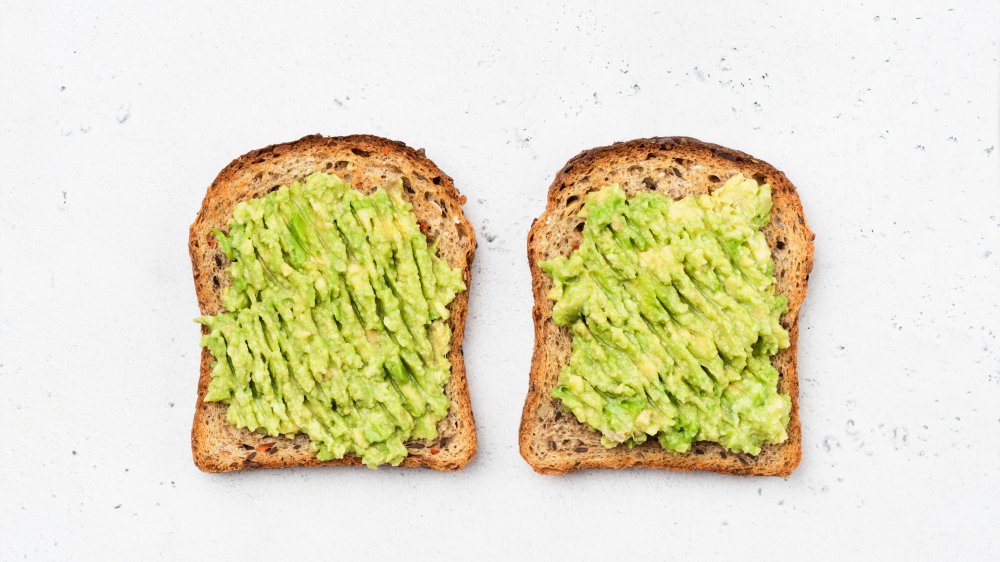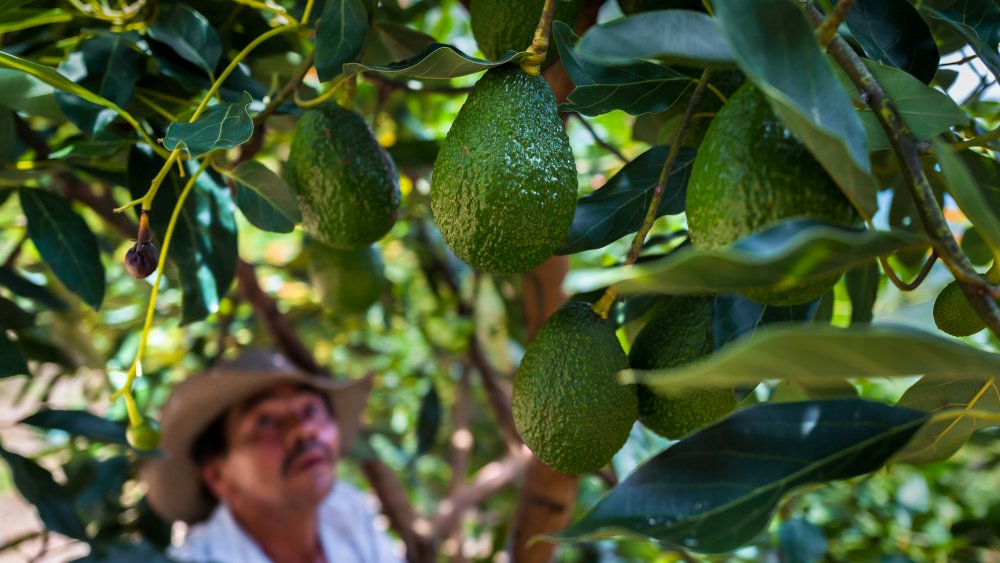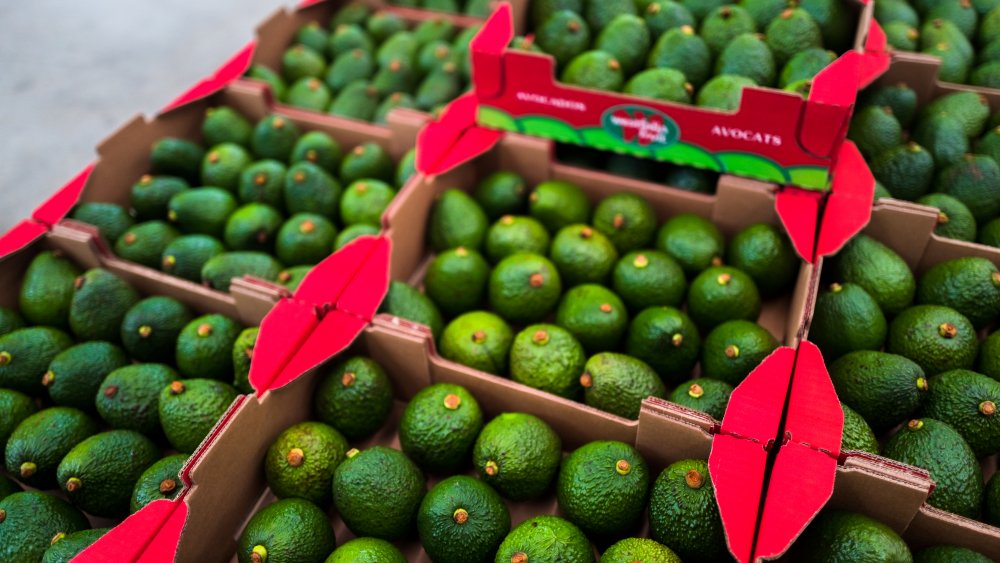The Dark Side Of Avocado Toast
Avocado toast is delicious and trendy. It makes a great brunch Instagram post (there were over 11 million #avocado posts at time of writing) and also provides health benefits. However, there is a dark side to the popularity of avocado toast and avocados in general in the negative effects that avocado farming has on the planet.
While avocado toast is not a new concept, the modern version is thought to have come from an Australian chef, Bill Granger, who added lime and chili in the 1990s; the concept then traveled the world, becoming a popular and trendy staple by the 2000s (via New Statesman).
People consumed five million tons of avocados in 2014, with huge popularity in America, Europe, and Australia. By 2018, its popularity began spreading to China, where sales doubled, creating a huge global demand for the fruit. In the United States, consumption of avocados has increased 400 percent compared to 10 years ago (via Food & Living Vegan).
The avocado is indigenous to Central and South America, where the people have eaten them for their nutritional value consisting of high levels of oleic acid, vitamin B, Vitamin C, vitamin E, and potassium, for over 3,000 years (via Sustainable Food Trust).
The environmental strains from avocado
However, the huge global demand has made the problematic aspects of avocado consumption on such a large scale evident. The resulting financial and environmental problems may mean continued consumption at such high levels is unsustainable.
Avocados are a huge drain on water resources. Every avocado requires 320 liters of water. Meanwhile, the high profitability of avocados often results in them being prioritized over other crops. This has resulted in them gaining the nickname "green gold," in South America.
Since the avocados are then usually exported, rather than grown for the local community, this results in food insecurity. It also results in a loss of water, as the water is exported within the crop, taking it away from the land. For example, the United Kingdom imports avocados containing over 25 cubic meters of water annually, the equivalent of 10,000 Olympic sized swimming pools. This has a highly destructive effect on the local communities who then lack access to clean drinking water.
Gang violence and avocados
While avocados can be grown worldwide, the primary producers remain in Central and South America, with Mexico serving as the largest producer of the fruit, where avocado production accounts for over 500,000 acres of farmland, a number that is climbing steadily, with the industry valued at over $5.6 billion annually.
Sadly, there is also a gang violence problem that has erupted as a result of the high demand for avocados. In Mexico, cartels have taken over avocado farms using fear tactics that include murder (via The Guardian). In Michoacán, a state in Mexico that produces 92 percent of Mexico's avocados, the cartels have escalated in violence: torturing, kidnapping, and murdering to gain control of the avocado industry. This has given the fruit another nickname, "blood avocados," as Mexican cartels have pivoted from trafficking in drugs like heroin and cocaine, to avocados.
The carbon footprint of avocados
Avocado demand is leading to an ever-increasing carbon footprint. According to Carbon Footprint Ltd., two small avocados are estimated to have a carbon footprint of 846.36 grams, which is almost twice the carbon footprint of a kilo of bananas. Part of this is due to the travel distance, as avocados need to be distributed worldwide from Central and South America. For example, an avocado grown in Mexico has to travel 5,555 miles to reach the United Kingdom. During the transportation process, the fruit needs to be shipped in temperature-controlled storage, using a lot of additional energy.
Mexico now grows avocados on plantation style farms with high agrochemical inputs and practices that degrade the soil. There are also issues of deforestation and a negative impact on the biodiversity of the area. Between 2001 and 2010, the production of avocados tripled in Michoacán, and that increased demand results in the loss of approximately 1,700 acres of forest a year, according to Mexico's National Institute for Forestry (via Global Citizen).
The positive side of avocado consumption
For avocado lovers, it isn't all bad news. From an environmental standing, avocados are still one of the better food choices. Plant-based foods are almost always better for the environment than animal-derived food products. As such, avocados are a better topping for toast than eggs or bacon, which can have double the carbon footprint of avocados. The footprint of avocados can be improved more through the use of better agricultural technology such as solar-powered pumps. However, cartels and financial challenges are obstacles to making those improvements (via Vice).
While avocados may be a nutritional super food, they have severe negative consequences on the environment and the local communities where the fruit is grown. As consumers, it is important to consider this information when purchasing food — and never let an avocado go to waste!




